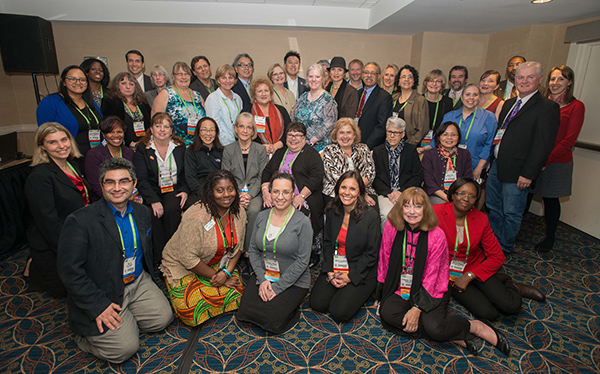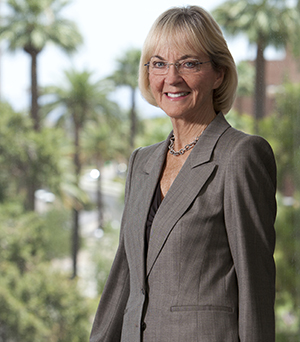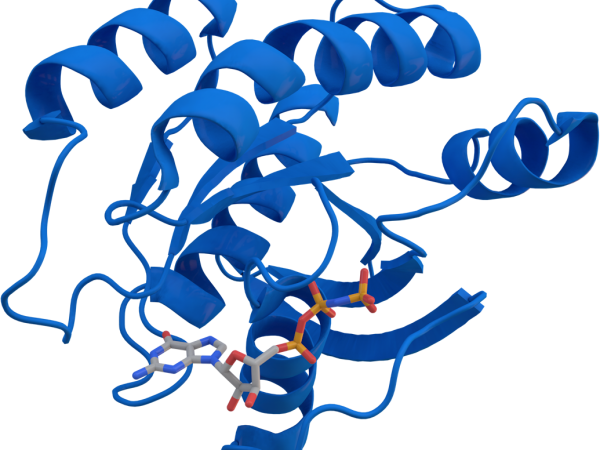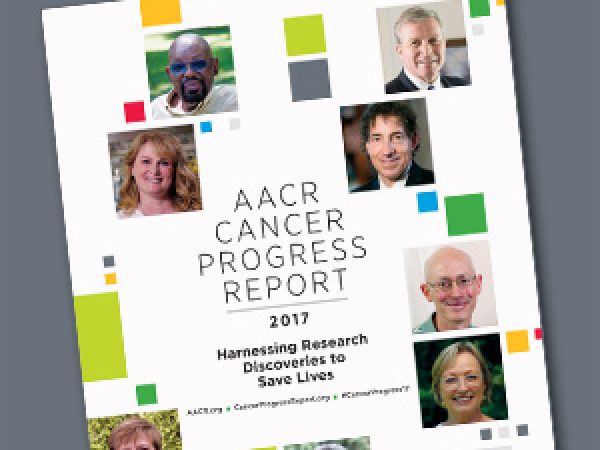Meet Anna Barker, PhD, Chair of the AACR Scientist↔Survivor Program
Editor’s Note: This is the third post in a series that highlights AACR chairpersons involved in the 2016 AACR Annual Meeting. The posts introduce you to these important AACR members, and give you insight into many facets of the meeting through their unique perspectives.
Tell us about the AACR Scientist↔Survivor Program.
Designed as a unique opportunity for cancer survivors/advocates to build real partnerships, the Scientist↔Survivor Program (SSP) began in 1999, so 2016 will mark its 17th year. The program’s overall goal is to engage survivors/advocates with both cancer scientists and cancer researchers through a partnership that serves to educate both of these communities. The SSP survivors/advocates receive special lectures from world-renowned scientists, attend major sessions and symposia at various meetings, participate in policy and other issues of high interest to their communities, and present their own advocacy-related posters.
The SSP “class” at the AACR Annual Meeting is organized into smaller groups that are guided by scientific mentors to attend sessions and participate broadly across the meeting. Each of the SSP groups is challenged with questions to guide them in selecting sessions to attend and to help them integrate the “tsunami” of information that they are exposed to. They are a select group – and they all appreciate what for most is a “once in a lifetime” opportunity.
How does a survivor get selected for the program?
The SSP is accessed through an online application process. Each year, the class is made up of approximately 30 new and some returning survivors/advocates. In selecting the participants, we emphasize a number of factors including the size and scope of the survivor/advocate’s organization and how they will disseminate the information they learn, his/her interest in learning about cancer research beyond their particular disease, and their willingness to enter into – and participate in – a working partnership with cancer scientists attending the Annual Meeting.
Why do you think it’s important for scientists to collaborate with advocates?
Increasingly, cancer scientists need to fully understand the problems and issues that face cancer patients and their families. The age of “precision medicine” will depend on a continuous learning loop from bench to bedside and back to bench. The critical link in that chain is the knowledge and feedback from patients, advocates, and their families. Precision medicine is also called “patient-centric” medicine – it’s really about what the patient can report in an area like established standard of care and clinical trials to test new cancer therapies. Patient-centric medicine is patient driven, and I have never met a patient that did not want to play a meaningful role in improving the survival and lives of all cancer patients. In the future, this partnership will become even more critical as federal and other sources of support for cancer research will depend on these types of two-way communication and exchange of information.
What is the role of the AACR Scientist↔Survivor Program at the Annual Meeting?
The SSP allows survivors and advocates to engage in meaningful conversations about progress in cancer research. It is not unusual for a cancer researcher to comment that this is their first exposure to a patient or advocate. Increasingly, survivor/advocacy groups are becoming directly involved in federal policies that affect all of the communities engaged in, and directly affected by, cancer research. This is especially true when it comes to federal and other sources of support for cancer research, which requires a united front based on mutual understanding, support, and trust. SSP provides a unique opportunity for those partnerships to develop and thrive.
What do you hear participants say they get out of the program?
We hear that SSP participants learn and experience a lot, especially the current state of cancer research. They also can dive deeper into specific topics of great interest to them, increasingly beyond their own disease. The also gain a number of friends and colleagues from other survivor/advocates to their scientific mentors to other scientists that they meet while attending AACR sessions and social events – partnerships that can last a lifetime!
How does the work of the patient advocates and the relationships they form with scientists extend beyond the Annual Meeting?
The survivor/advocates take their learning back to their constituencies. To accomplish their educational goals that they set for like-minded individuals in their organizations, they write blogs, make presentations, write op-eds, and sometimes redesign their education programs based on things they take away from the Annual Meeting. It’s an “evergreen” and expansive process – one survivor/advocate can educate and inform many! Many of the survivors/advocates stay in contact with their mentors and, in select cases based on the knowledge gained at the AACR Annual Meeting, become involved in the research process through research programs and areas such as clinical trials planning and enrollment.
In what year did you first attend an AACR Annual Meeting, and can you share a memory from it?
I honestly don’t remember the first year I attended an AACR Annual Meeting, but I think it was likely in the early 1970s as a graduate student. The feeling that I recall is “overwhelming,” but I knew immediately that I had to be part of this organization. When I think back to how big and awesome things appeared to me then, it’s easy to understand why everyone who attends today’s Annual Meeting comes with goals and a plan – words to live by!
Anna Barker, PhD, is chair of the American Association for Cancer Research (AACR) Scientist↔Survivor Program, and holds several positions at Arizona State University including co-director of Complex Adaptive Systems, director of the National Biomarker Development Alliance, director of Transformative Healthcare Knowledge Networks, and professor of Life Sciences. Her research interests include complex adaptive systems; disease, biomarker discovery and development; experimental therapeutics; and free-radical biochemistry in cancer etiology and treatment. Previously, Barker served several years as the deputy director and deputy director for Strategic Scientific Initiatives for the National Cancer Institute. She also served on the AACR board of directors from 1995-1996 and 1998-2001. Barker has received a number of awards for her contributions to cancer research and professional and advocacy organizations including the AACR Margaret Foti Award for Leadership and Extraordinary Achievements in Cancer Research.





